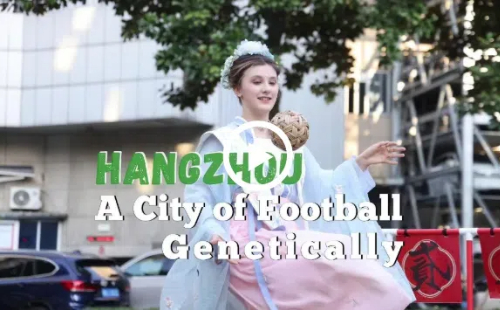Song Dynasty Culture in Tiantai
Due to its unique culture and dynamism, the Song period (960-1279) has been lauded as the "renaissance of the orient", a pioneering dynasty in and of itself. Maturing and prospering during the Song dynasty, Confucianism, Buddhism and Taoism have co-existed harmoniously in Tiantai, Zhejiang province throughout history, and their influence can be felt to this day.
What kinds of Song elements can still be found today in Tiantai, and how have they impacted Tiantai?
Tiantai, with a history of over 1,800 years, is the birthplace of Ji Gong (1130 or 1148-1209), the "Living Buddha". Born as Li Xiuyuan in Tiantai's Yongning village, Ji Gong, also known as "Chan Master Daoji", was a Chan Buddhist monk who lived during the Southern Song (1127-1279). He was believed to have possessed supernatural powers, which he wielded to help the poor and to fight injustices. He was also known for his wild and eccentric behavior - he purportedly didn't follow the Buddhist monastic rules, consuming alcohol and meat at will. In the eight centuries since his death, Ji Gong has become a legend in Chinese culture, with his tales widely told in literature, TV and film, paintings, and sculptures, among other popular media. The culture related to Ji Gong has arguably become the most well-known and far-reaching element of Tiantai Mountains culture, fostered during the Song dynasty. In 2002, the renovation of Ji Gong's former residence provided a place of worship and cultural exchange for Ji Gong believers all over the world. For his followers, Tiantai is the ancestral home to which they must return. In 2006, the legend of Ji Gong was listed in the first group of National Intangible Cultural Heritage Items. In recent years, an annual cultural festival in honor of Ji Gong has been held in Tiantai.
More than anything else, the core humanistic values of Tiantai Mountains culture lie in the culture of the Tiantai School of Buddhism. Founded by Master Zhiyi (538-597), the Tiantai school became one of the most influential schools of Buddhism in China during the Sui dynasty (581-618), with a large number of great temples supported by emperors and various wealthy patrons. The school's influence lasted through the first half of the Tang dynasty (618-907), before it began to wane. The Tiantai school was then revived during the Kingdom of Wuyue (907-978), when Buddhism was held in particularly high esteem. During the Northern Song dynasty (960-1127), it rose once again. Highly respected and regarded by generations of emperors for the next 400 years, the teachings of the Tiantai school were instrumental not only in educating and enlightening the general populace and governing the country, but also in promoting social harmony.
It was during this period that a large number of eminent monks of the Tiantai school emerged, and extensive and far-reaching overseas exchanges were conducted, which helped lay a solid foundation for the spread of the school in later periods.
In addition to Buddhism, Taoism also thrived in the Song dynasty, when the emperors' reverence for Taoism reached its peak. Imperial Taoist temples were built, Taoist works collected, and a number of Taoist festivals and holidays were designated. Against this backdrop, the Nanzong (Southern Lineage) of Taoism was established in Tiantai. Zhang Boduan, the founder, was born in Tiantai. His book Wuzhen Pian (or Awakening to Reality) is a 1075 Taoist classic on Neidan-style internal alchemy. In essence, it tells people how to maintain harmony between their body and mind, and how to maintain harmony with nature.
In the Southern Song period, Tiantai's Confucianism flourished under the influence of Zhu Xi (1130-1200), one of China's foremost Neo-Confucianists. Borrowing from the Tiantai Buddhist and Taoist traditions, Zhu further developed the metaphysical theories in regard to Li, or principle. Indeed, the spirit of Taizhou (where Tiantai is located) scholars strictly abiding by moral principles while ignoring any gains and sacrificing their lives for justice is closely related to Zhu Xi's development of Neo-Confucianism in the area.
The birth and formation of the culture of the Tiantai Mountains during the Song dynasty, from the founding of the Tiantai Buddhist school and the Nanzong of Taoism, to Ji Gong the Living Buddha and the development of Zhu Xi's theory of Li, meant that the values of this system were recognized and followed. It also meant the establishment of social mores and social order was guided by this system, which became the cultural foundation for Tiantai's economic and social development at that time. Eventually, the whole process will serve as a cultural reference for modern social development.





 play
play